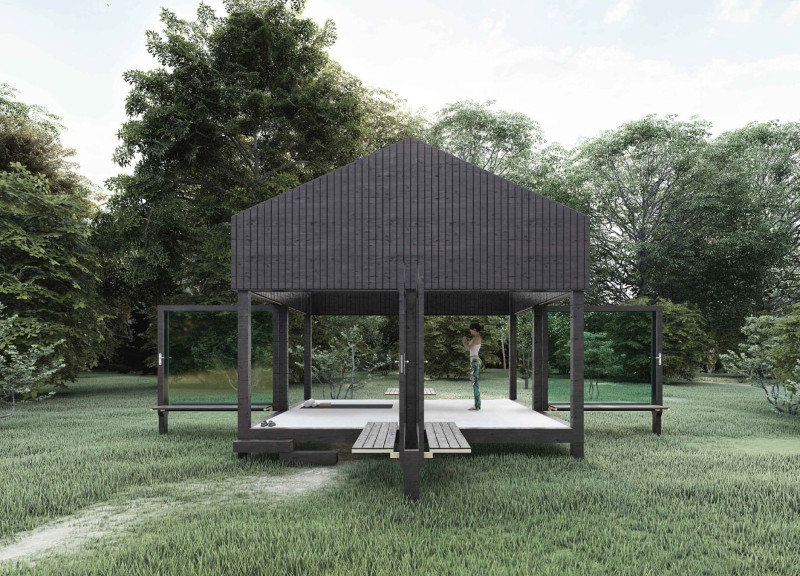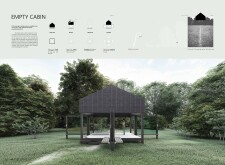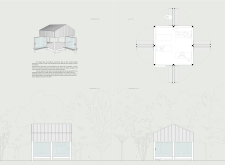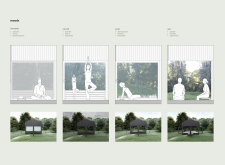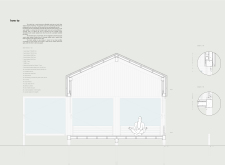5 key facts about this project
The Empty Cabin is a thoughtful design situated in a peaceful forest clearing, intended primarily for meditation and reflection. The project embraces the idea of absence, allowing it to blend naturally into its environment. It offers visitors a space to experience tranquility and engage deeply with nature. The design focuses on simplicity and openness, encouraging the connection between the indoors and outdoors.
Architectural Concept
The layout of the Empty Cabin is open and free of partitions, providing flexibility for its use. This design creates a direct link between the cabin's interior and the surrounding landscape, allowing users to feel fully immersed in nature. The minimalist approach accentuates its role as a space for quiet contemplation. With fewer distractions, individuals can find peace and connection in the forest.
Materials and Features
This cabin features large operable windows that invite daylight and fresh air into the space, enhancing the experience of being in the forest. The windows are secured to wooden stakes, providing stability while offering clear views of the landscape. Each window has a folding bench attached, which can serve as a place for aromatic flowers or additional seating. This versatile design contributes to the cabin's overall functionality.
Connection to Nature
The absence of conventional furniture within the cabin allows for personal contributions from visitors. It emphasizes how occupants engage with the environment, transforming the cabin into a unique sanctuary for each individual. The primary material used in construction is wood, along with acrylic for the windows, which provides strength and lightweight properties. These choices help the cabin blend into its surroundings and maintain an organic feel.
Final Design Detail
The flooring uses self-leveling concrete that gives the appearance of natural stone, creating a grounding effect. This detail reinforces the intimate relationship between the built space and its natural setting, making the experience more cohesive and connected. The design captures the essence of calm and contemplation in the heart of the forest.


